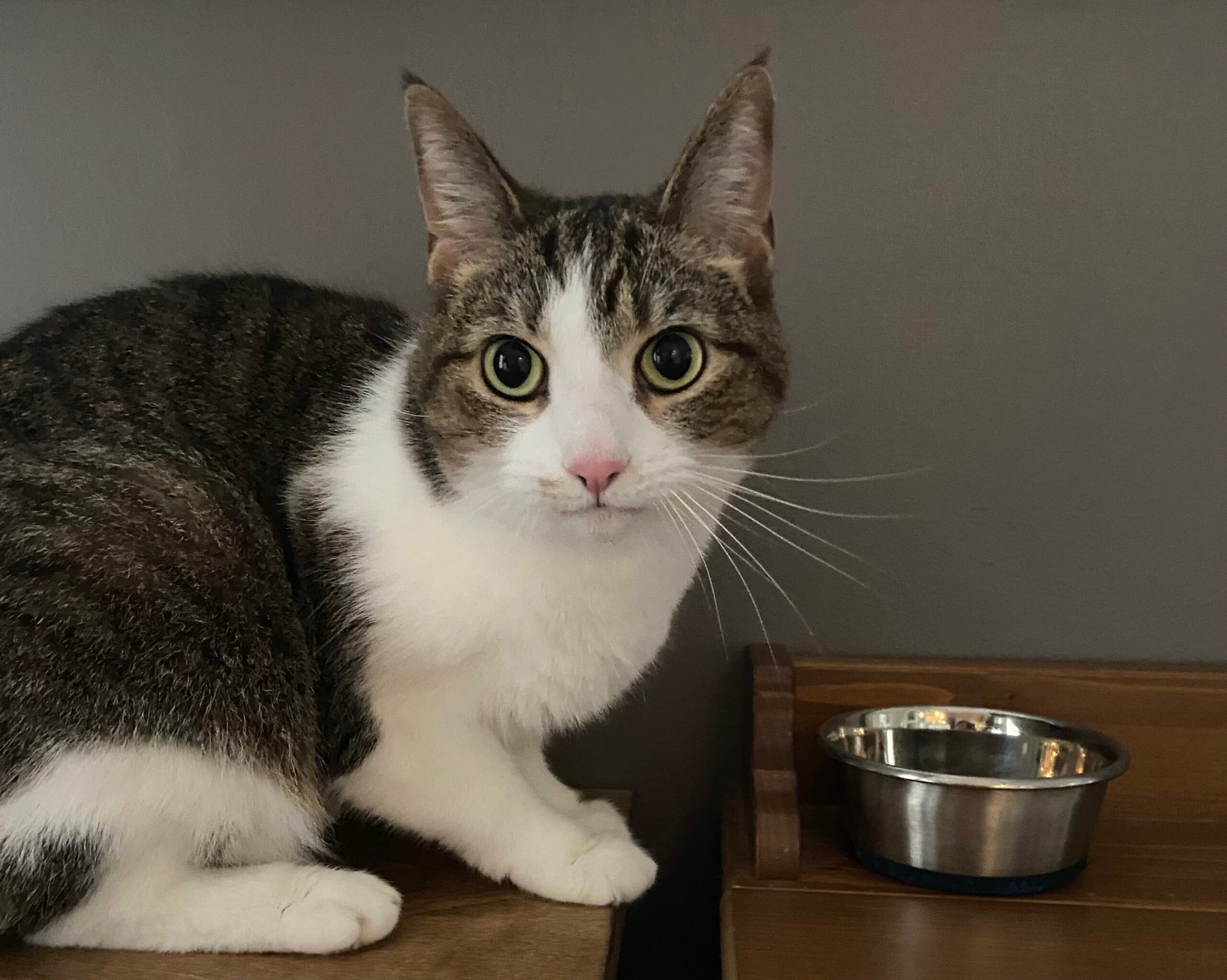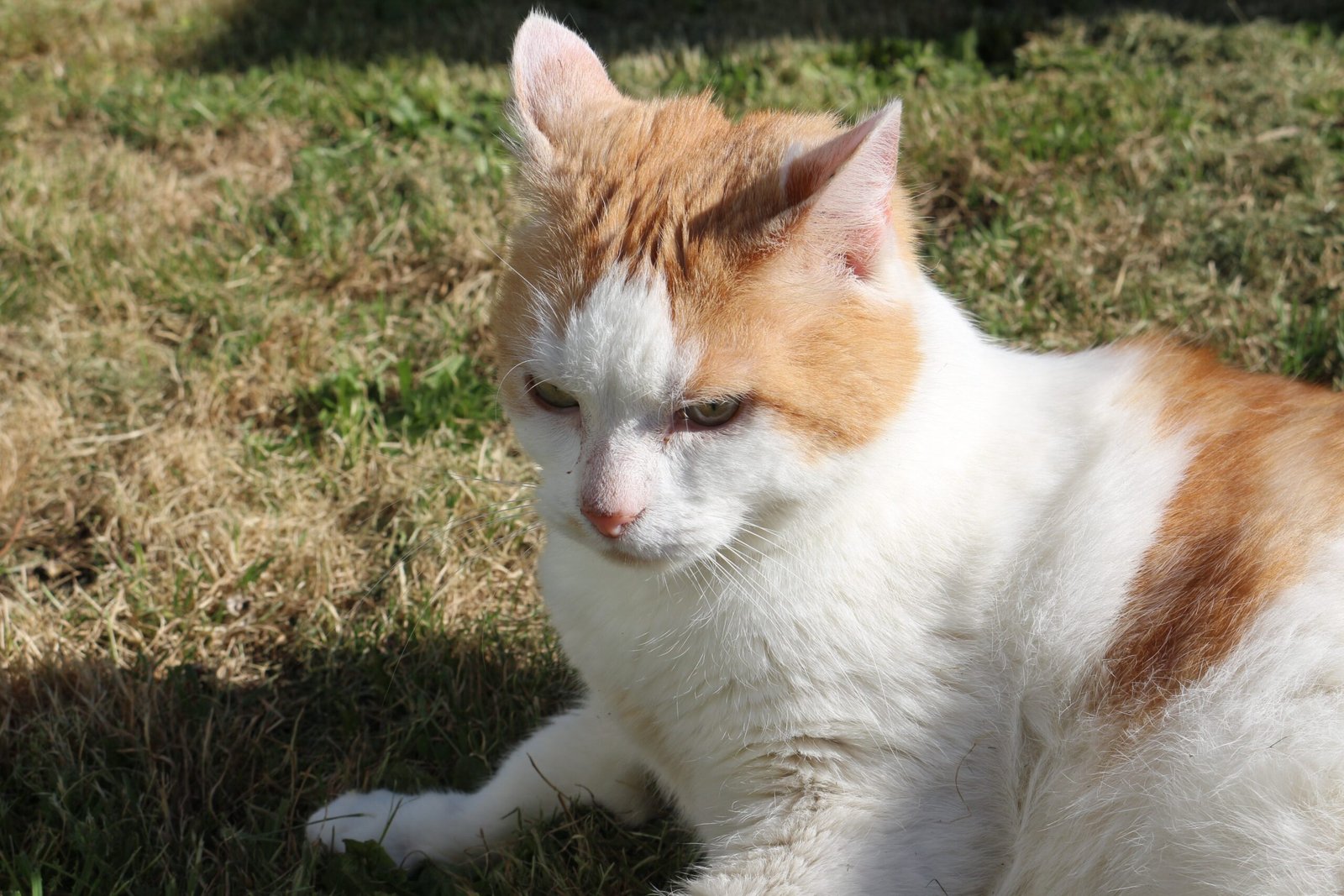Have you ever called your cat’s name across the room, only to watch them flick an ear or lazily blink in your direction? It makes you wonder—do cats really know their own names, or are they just ignoring us because they can? This question has stumped pet owners for decades and sparked countless internet debates. The truth is much more surprising—and a lot more interesting—than most people realize. Get ready to find out what’s really going on inside your feline friend’s mysterious mind.
How Cats Experience Sound Differently Than Humans

Cats have hearing that is nothing short of extraordinary. Their ears can swivel like tiny satellite dishes, picking up the faintest rustle or the softest footstep. While humans generally hear frequencies between 20 Hz and 20,000 Hz, cats can detect sounds up to 64,000 Hz. This means they’re acutely tuned to high-pitched noises, including the unique tones in your voice when you call their name. Unlike humans, cats also process sounds differently, often focusing on what interests them most. If your cat seems to ignore you, it might just be filtering out “background noise.” This selective hearing might be part of their survival instincts, helping them detect prey—or, at home, the sound of a can opener. So, when you say their name, rest assured it’s not lost on them. They’re just deciding if it’s worth their attention.
The Science Behind Cats Recognizing Words

Recent studies have shown that cats can distinguish between different human words, especially those they hear frequently. Researchers have tested this by playing recordings of owners saying their cats’ names, mixed with other words of similar length and tone. The cats typically responded—through ear or head movements—when their own name was spoken, but not to the other words. This suggests that cats aren’t just reacting to any sound; they’re actually picking out words that matter to them. Scientists believe this ability stems from a cat’s capacity for associative learning. Over time, cats connect certain sounds (like their name) with rewards, attention, or food. Although they may not “know” their name in the way humans do, they recognize the sound as something important. This subtle but fascinating distinction is part of what makes cats so mysterious and intriguing.
Real-Life Observations of Cats and Their Names

Cat owners everywhere have their own stories to tell. Some swear that their cats come running the moment they hear their names, while others joke that their cats only respond when they want to. These anecdotes, while amusing, actually line up with scientific findings. In multi-cat households, some felines will perk up only at their own name, ignoring others—even if the words sound similar. This selective attention hints at a deeper level of recognition. Many owners also notice that their cats react more strongly when their names are said in a certain tone of voice, usually the high-pitched, affectionate way people naturally use with pets. It’s not just about the word itself, but the whole package: sound, tone, and context. The next time your cat ignores you, remember, it’s not personal—it’s just feline logic at work.
Do Cats Respond to Names Differently Than Dogs?

Dogs are known for their enthusiastic responses when their names are called, often running over with tails wagging. Cats, on the other hand, are usually more reserved. This difference isn’t because cats are less intelligent or less affectionate. Instead, it comes down to evolution and domestication. Dogs have spent thousands of years working closely with humans, learning to respond to cues and commands. Cats, on the other hand, were domesticated mainly for pest control and have always been more independent. While both animals can recognize their names, cats are less likely to respond with obvious enthusiasm. They might simply glance over, twitch an ear, or shift position. These subtle responses are easy to miss if you’re expecting a dog-like reaction. Understanding this difference can help cat owners appreciate their pets’ unique personalities.
The Role of Repetition in Name Recognition

Just like people, cats learn through repetition and routine. The more often you use your cat’s name in a positive context, the more likely they are to recognize it. Cats are creatures of habit, and they quickly pick up on patterns. If you call their name before feeding or petting them, they’ll start to associate the sound with good things. Some experts recommend using your cat’s name consistently and avoiding overuse in negative situations, like scolding. This helps reinforce the connection between their name and positive experiences. Over time, this repetition builds a strong association in your cat’s mind. Even if your cat doesn’t come running every time, rest assured they know when their name is being called—they’re just deciding what to do about it.
Why Some Cats Ignore Their Names

It’s a familiar scene: you call your cat’s name, and they don’t even bat an eye. This can be frustrating, but it’s rarely a sign that your cat doesn’t know their name. More often, it’s a case of selective attention. Cats are independent animals by nature, and they don’t always feel the need to respond to human calls. They might be comfortable, uninterested, or simply too busy watching a dust mote float by. Some breeds are more aloof or stubborn than others, making them less likely to respond. Factors like age, hearing ability, and even mood can also play a role. It’s important not to take this behavior personally. Instead, try using treats, toys, or extra affection to encourage your cat to respond more often. With a little patience, you might just find your cat surprises you one day.
How to Teach Your Cat Its Name

Teaching a cat its name isn’t as hard as it sounds, but it does take patience and consistency. Start by saying your cat’s name in a gentle, upbeat tone, then immediately reward them with a treat or a favorite toy when they look your way. Repeat this process several times a day, keeping sessions short and positive. Avoid using their name in a negative context, as this can confuse your cat or make them associate the name with something unpleasant. Over time, your cat will start to recognize the sound of their name and respond more readily. Some people find that adding a unique sound, like a whistle or click, can help reinforce the association. With enough repetition and positive reinforcement, most cats can learn to recognize and respond to their names.
Common Mistakes When Calling Your Cat

Many cat owners accidentally sabotage their efforts to teach name recognition. One of the most common mistakes is overusing the cat’s name, especially when scolding or during negative experiences. This can make your cat wary or even ignore the name altogether. Another mistake is calling your cat in a flat or harsh tone, which can make them less likely to respond. It’s also easy to confuse cats by using nicknames or different variations of their name. While these might sound cute to us, they can be confusing to a cat trying to learn a specific sound. To avoid these pitfalls, stick to one name and use it consistently in a positive, friendly tone. Remember, patience is key—cats learn at their own pace, and every cat is a little different.
The Impact of Tone and Emotion

Cats are incredibly sensitive to the tone and emotion in your voice. They can pick up on subtle changes in pitch, volume, and mood. When you call their name with warmth and affection, they’re more likely to respond. On the other hand, if you sound angry or stressed, your cat might hide or ignore you. This sensitivity is part of what makes cats such perceptive companions. It also means that your emotional state can impact your cat’s behavior. If you want your cat to come when called, try using a soft, happy tone and pair their name with gentle gestures. Over time, your cat will associate their name not just with a sound, but with a feeling—a key factor in building a strong bond.
Do Kittens Learn Names Faster Than Adult Cats?

Kittens are like little sponges, soaking up everything around them—including their names. Because they’re still developing and highly curious, kittens often learn new things quickly. Teaching a kitten its name can be easier than teaching an older cat, especially if you start early and use plenty of positive reinforcement. That said, adult cats aren’t hopeless. They can still learn their names, but it might take a bit more time and patience. Older cats may have established routines or habits that make them less responsive to new training. However, with consistency and encouragement, even senior cats can pick up on their names. The key is to make the experience fun and rewarding, no matter your cat’s age.
How Multi-Cat Households Affect Name Recognition

Living with multiple cats can make name recognition a bit trickier. Sometimes, cats will respond to any name called, especially if it’s followed by something exciting like food or playtime. Other times, cats may only react to their specific name, showing a surprising level of individual recognition. To help each cat learn its own name, try calling them separately and rewarding the right cat for responding. This helps reinforce the association between the specific sound of their name and the reward. In busy households, it’s easy for cats to tune out background noise, so be patient and persistent. Over time, most cats will learn to pick out their own name, even in a crowd.
Breed Differences in Name Recognition

Not all cats are created equal when it comes to responding to names. Some breeds, like Siamese or Maine Coons, are known for being more vocal and interactive. These cats might be more likely to respond when called, thanks to their social nature. Other breeds, like Persians or British Shorthairs, tend to be more laid-back or independent and might ignore calls more frequently. Of course, every cat is unique, and personality plays a big role. While breed can influence behavior, individual experiences and training matter just as much. If your cat isn’t as responsive as you’d like, don’t blame their breed—focus on building a positive association with their name.
Do Cats Recognize Other Words?

Cats are capable of learning more than just their names. Many can recognize words or phrases related to food, play, or routines—like “treat,” “dinner,” or “bedtime.” Some clever cats even learn to distinguish between the names of different family members or other pets. This ability is a testament to the intelligence and adaptability of cats. The key is repetition and context. The more often a word is used in a specific situation, the more likely your cat is to pick up on its meaning. So, if you want your cat to learn new words, start by saying them consistently and pairing them with the appropriate action or reward.
Using Nicknames and Variations

Many cat owners love to use nicknames and playful variations of their pet’s name. While this can be endearing, it can also be confusing for your cat. If you regularly switch between “Mittens,” “Mitty,” and “Mitz,” your cat may not realize you’re talking to them. For best results, stick to one main name when you want your cat’s attention. You can still use nicknames during cuddle time or play, but be consistent when calling them. Over time, some cats do learn to recognize multiple variations, especially if they’re used often. However, if your cat seems confused or less responsive, try simplifying things and see if it helps.
Are There Cultural Differences in How Cats Are Named?

Around the world, people have different traditions and preferences when it comes to naming their cats. In some cultures, cats are given names with special meanings or chosen based on appearance or personality. In others, cats might be called by simple descriptors, like “Blackie” or “Fluffy.” These cultural variations can affect how cats learn and respond to their names. In households where pets are considered part of the family, names are often used more affectionately and consistently. In other places, cats might be more independent, with names used less frequently. Despite these differences, the basic principles of name recognition remain the same. Cats everywhere respond best to names that are used regularly and associated with positive experiences.
The Role of Environment in Name Recognition

A cat’s environment can have a big impact on how well they learn and respond to their name. In a calm, quiet home, a cat may be more likely to notice and react when called. In busier environments, with lots of background noise or distractions, cats might tune out more easily. Changes in the household, like new pets or moving to a new home, can also affect a cat’s responsiveness. To help your cat recognize their name, try calling them in a quiet, familiar setting. Use their name during happy moments—like feeding, playing, or cuddling—to build a positive connection. Over time, your cat will learn to associate their name with good things, making them more likely to respond.
Do Cats Understand Their Names or Just Respond to Sounds?

This is the million-dollar question for many cat owners. Do cats truly “know” their names, or are they just reacting to a familiar sound? The answer is somewhere in between. While cats may not understand their names the way humans do, they do recognize the specific sound pattern and associate it with certain outcomes. For example, if hearing their name is always followed by treats, attention, or play, they’ll learn to respond. This type of learning is called associative learning, and it’s common in many animals. So, while your cat might not have a sense of identity tied to their name, they definitely recognize it as something that matters in their world.
What Happens If You Change a Cat’s Name?

Adopting a cat with a name you don’t love is common, and many people wonder if it’s okay to give their new pet a fresh start. The good news is, cats can learn new names with a little patience. The process is similar to teaching a cat its original name: use the new name consistently, pair it with positive experiences, and avoid confusion by sticking to one name. Over time, your cat will start to respond to the new sound. Some cats adapt quickly, while others take a bit longer. If your cat seems confused, try using both names together for a while, gradually phasing out the old one. With time and repetition, most cats adjust just fine.
Signs Your Cat Recognizes Their Name

Cats are masters of subtlety, so their responses can be easy to miss. Signs that your cat recognizes their name include turning their head, flicking their ears, making eye contact, or moving toward you. Some cats might vocalize, purr, or even run over when called. Others may simply pause what they’re doing or look in your direction. These small gestures are your cat’s way of acknowledging that they’ve heard you. Every cat is different, so pay attention to your pet’s unique signals. Over time, you’ll learn to spot the subtle signs that mean your cat really does know their name.
Can Deaf Cats Learn Name Recognition?

Deaf cats face unique challenges, but they can still learn to recognize signals associated with their names. Instead of relying on sound, deaf cats respond to visual or tactile cues. For example, you might use a specific hand gesture, a flash of light, or a gentle tap to get their attention. The principles of repetition and positive reinforcement still apply—just in a different way. With patience and creativity, even deaf cats can learn to connect a particular signal with positive outcomes. Many owners of deaf cats find that their pets are just as responsive and affectionate as hearing cats, once they learn the new “language.”
Final Thoughts on Feline Name Recognition

The mysterious ways of cats never fail to fascinate. Whether your cat comes running or simply lifts an eyebrow when you call their name, there’s no doubt they’re listening—and making a choice. The bond between humans and cats is built on subtle signals, shared routines, and mutual respect, not just obedience. Next time you call your cat, watch closely for those little signs that show they recognize you. Isn’t it amazing to think that a simple word can be the bridge between two very different worlds?
Hi, I’m Bola, a passionate writer and creative strategist with a knack for crafting compelling content that educates, inspires, and connects. Over the years, I’ve honed my skills across various writing fields, including content creation, copywriting, online course development, and video scriptwriting.
When I’m not at my desk, you’ll find me exploring new ideas, reading books, or brainstorming creative ways to solve challenges. I believe that words have the power to transform, and I’m here to help you leverage that power for success.
Thanks for stopping by, Keep coming to this website to checkout new articles form me. You’d always love it!




